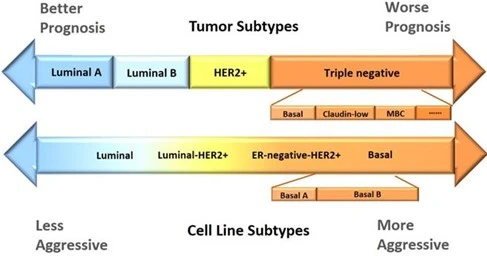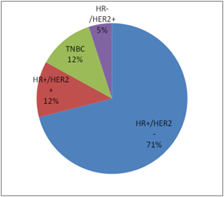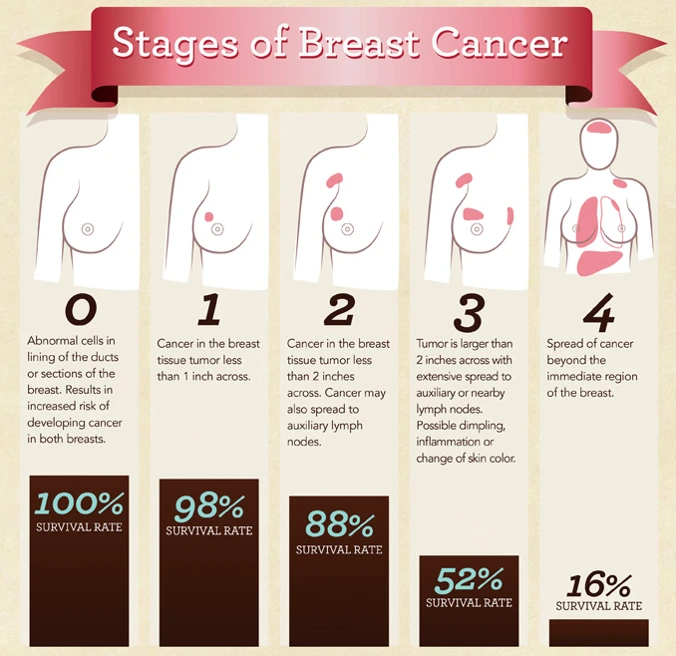Breast cancer is one of the most common types of cancer affecting women worldwide. While the exact causes of breast cancer are not fully understood, there are multiple risk factors that can be identified such as genetic, long-term hormonal exposure, null parity, age, obesity, unhealthy lifestyle choices eg. smoking, alcohol intake, and consuming ultra-process food which can increase the probability to develop breast cancer. Regular Breast Self-Examination (BSE) monthly is important to detect any lumps in the breast and regular screening ultrasound and mammogram is advocated at the age of 40 or earlier if symptomatic for early detection. Diagnosis of breast cancer and its type and stage is crucial for personalise and effective treatment that will improve outcome and survival of patient and lower the recurrence rate.
Breast cancer comprises of different types; based on its cells and molecular biology. Nowadays, it is essential to ascertain the types of breast cancer from tissue biopsy and its stage before deciding on the treatment.
Types of breast cancer can either be in form of ductal and lobular cells in origin and as for the molecular subtypes, it is based on the Immunohistochemistry staining eg. estrogen receptor, progesterone receptor, and Her2 receptor. The treatment for each types differ and depends on the stage of the disease. The more aggressive types which is the triple negative and Her2 cancer, if present at Stage 2 and above will be subjected to neoadjuvant chemotherapy better with this treatment as compared to adjuvant treatment given post-surgery.
Types of Breast Cancer
Breast cancer is not a single disease; it encompasses a variety of subtypes that are classified based on the specific characteristics of the tumour cells.


Stages of Breast Cancer
Breast cancer is also classified into different stages based on the size of the tumour, the extent of lymph node involvement, and whether the cancer has spread to other parts of the body. The stage of breast cancer, ranging from Stage 0 to Stage 4, provides an indication of how advanced the disease is. Lower stage cancers are generally more treatable, while higher stage cancers require more intensive interventions.

Importance of Understanding Breast Cancer Type and Stage
By understanding the specifics of their breast cancer diagnosis, patients can be more informed and actively involved in their own care. This knowledge allows them to work closely with their healthcare team to make well-informed decisions about the most appropriate treatments, which may include surgery, radiation, chemotherapy, targeted therapies, or a combination approach.
Regular breast exams and screening tests, such as mammograms, are also crucial for the early detection of breast cancer. When caught early, the chances of successful treatment and long-term remission are significantly improved. Empowering patients with information about breast cancer type and stage supports their ability to take an active role in their health and wellness journey.
Dr. Suraya Binti Baharudin
Consultant Breast & Endocrine Surgeon
Gleneagles Hospital Kuala Lumpur

Wait a minute

Wait a minute